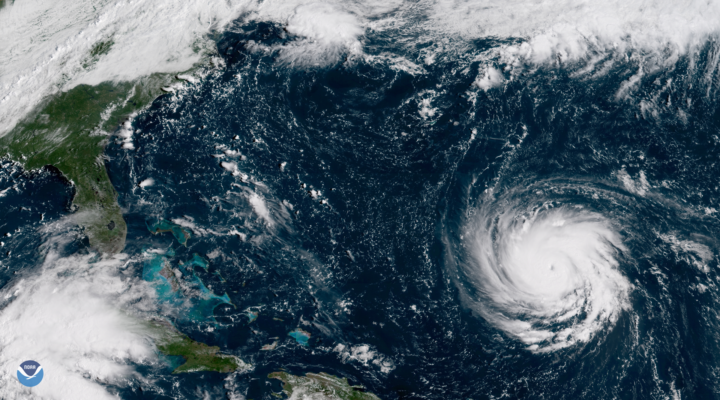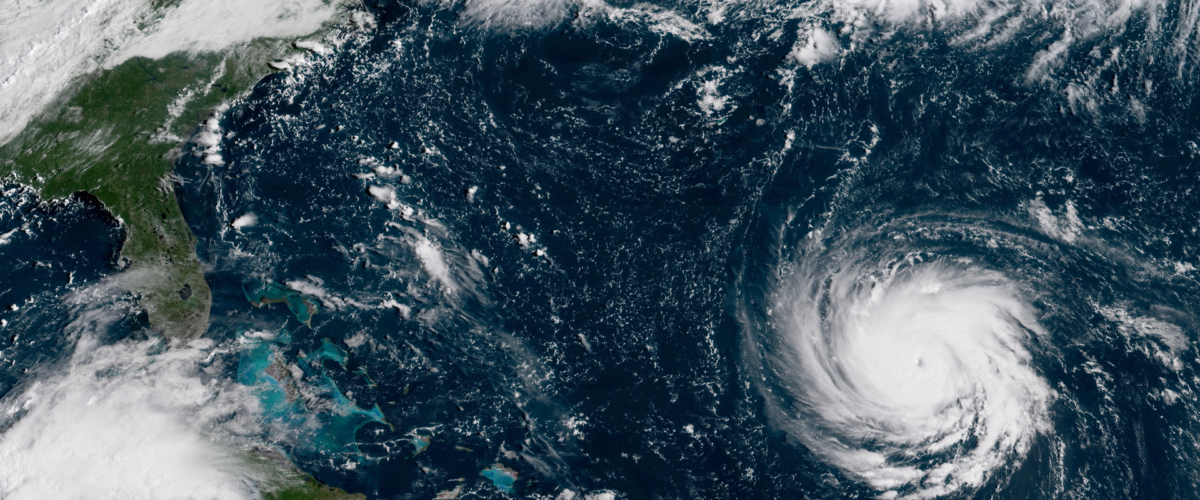Matt Cook is staying in North Carolina while his family evacuates to Florida to get out of the path of Hurricane Florence.
But Cook, the pastor at First Baptist Church in Wilmington, knows he isn’t alone. And that has as much to do with a certain Weather Channel superstar as it does with being part of a community of faith.

Matt Cook
“When Jim Cantore is in your town, it’s amazing how many people start calling you,” Cook said Wednesday morning. “My texts and calls have been blowing up from old seminary friends and colleagues around the country.”
That not-being-alone part, however, is what it’s all about for Cook and all of those in the Carolinas currently bracing for Florence.
Cook and his fellow ministers and deacons have spent days checking in with church members, both those planning to evacuate and those planning to remain in the coastal city located in the hurricane’s projected path.
It’s a part of ministry most hope they’ll never have to experience – but one that pastors across the region are undertaking in hopes of ensuring no one is alone or forgotten before, during and after the Category 4 hurricane makes landfall, which is estimated to be Friday evening.
Cook said he will spend Wednesday and Thursday making last-minute pastoral visits with recovering surgery patients as well as those in hospice.
While it’s impossible to know what Florence’s impact will really be, Cook said he knows he and those of his flock remaining behind aren’t alone.
“I’ve had a lot of support on the emotional support side and on the logistical,” he said. “I’ve had folks calling to say they have teams to send us. We are taken care of.”
‘When the rubber meets the road’
Survivors of Hurricane Harvey in 2017 know exactly what the leadership of First Baptist Wilmington and other churches are feeling right now.
“It definitely rewinds the clock. It takes you back,” said Carey Cannon, the minister of music at South Main Baptist Church in Houston.
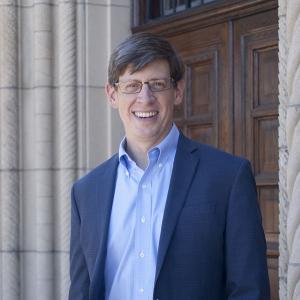
Carey Cannon
Harvey ravaged Houston and the surrounding communities, causing flooding that left tens of thousands – including Cannon and his family – homeless for months. Many are still recovering physically and emotionally from the storm that hit just over a year ago.
Cannon recalled that the days and hours before the storm were nearly as hectic as those after. Tracking the path of Florence brings it all back.
“You start thinking about the trips to Home Depot and Lowe’s, grasping for straws as you try to get sandbags, water, food,” he said. “I remember coming up empty on gas and there was no water on the shelves, and there was this guy with 50 sandbags in his cart. He had the last of the sandbags.”
Then it became evident how puny those efforts were once Harvey was gone.
“When the rubber meets the road, none of it matters. You are going to get hit and none of that is going to keep the water from coming in,” he said.
It’s a powerful message for those facing a slow-moving Florence expected to dump huge amounts of rain in North and South Carolina.
At South Main Baptist in Houston, it helped that the staff had a spreadsheet, prepared after flooding a few years before, listing congregants by areas of town that were likely to experience the most impact, Cannon said.
Those members were contacted before and after the storm.
But ministers have to prepare themselves, too, he added.
“While the church is important, first and foremost is your family,” Cannon said. “It’s amazing how quickly the priorities start lining up.”
‘Life is not about our plans’
The priorities also line up in the aftermath of storms, said Taylor Sandlin, the pastor at Sugar Land Baptist Church in Sugar Land, Texas, which is located about 20 miles southwest of Houston.
The elderly and shut-ins must be checked on as soon as possible, as well as those who are disabled.

Taylor Sandlin
“It’s not a bad idea to go down your Sunday school roll to check on your folks and see if they have a place to stay,” Sandlin said. “That’s one of the places the church can make a big difference.”
Depending on the level of disruption, church services may need to be rescheduled and sermons re-written, he said.
“Everything we had planned for the fall went out the window,” Sandlin said. “Everything was focused on hurricane recovery and we changed our sermons for the next month – they were about how God might redeem the suffering” wrought by Harvey.
For Sandlin, that meant staying in the Psalms.
“It was about helping each other grieve in this moment,” he said.
Sandlin said he saw God’s redeeming action after Harvey in the way neighbors helped neighbors and in the way Christians leaned into their faith communities during the difficult months that followed.
“It let us see what it means to be the family of God in this place and to love our neighbors as God loves us,” he said.
Hurricanes and other tragedies are a reminder that emotional and spiritual preparation also are important.
“Life is not about our plans,” Sandlin said. “We moderns think we control things because we can see storms on a doppler radar, but we still don’t control nature and moments like these remind us of our smallness.”
‘An anxious moment’
It’s also about congregations and individuals doing whatever they can to help, however that might look, said David Brooks, the pastor at Edenton Baptist Church in Edenton, a coastal city located about 185 miles north of Wilmington.
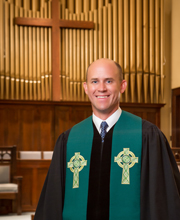
David Brooks
For his church, it’s opening its facilities as a makeshift shelter for church members and their friends to supplement city and county shelters expected to open, Brooks said.
He also expects Edenton Baptist to function as a hub for North Carolina Baptist Men operations in the aftermath of Florence.
“If we get what we expect, we may be one of those sites,” he said.
And, like Cook, Brooks said he has friends and fellow ministers checking in on him.
“I have a network.”
That’s also turning out to be important in areas of the Carolinas that may escape Florence’s heaviest winds, but not her rain.
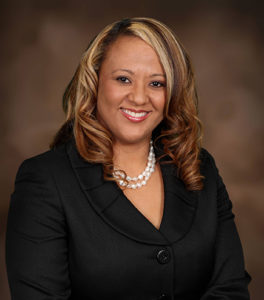
LaTonya McIver Penny
“We’ve decided to use our Facebook page with lists of readiness materials, shelter listings and other ways to prepare,” said LaTonya McIver Perry, the pastor at New Mount Zion Baptist Church in Roxboro, North Carolina, which is located about 50 miles north of Raleigh.
Deacons have been assigned letters of the alphabet to check on church members before and after the storm, she said.
At the moment, she said, it’s all about the pastoral side of ministry.
“I have gotten texts asking for prayer,” she said. “There is the normal anxiety.”

Jayne Davis
The uncertainty is one of the most difficult aspects preceding a storm event like Florence.
“We are asking our folks to care for one another and reach out to the region and the community,” said Jayne Davis, the associate pastor for discipleship at First Baptist Church in Wilmington.
“It’s just an anxious moment right now because of the unknown.”
Related story:
Physical recovery progressing a year after Harvey. Emotionally, not so much

